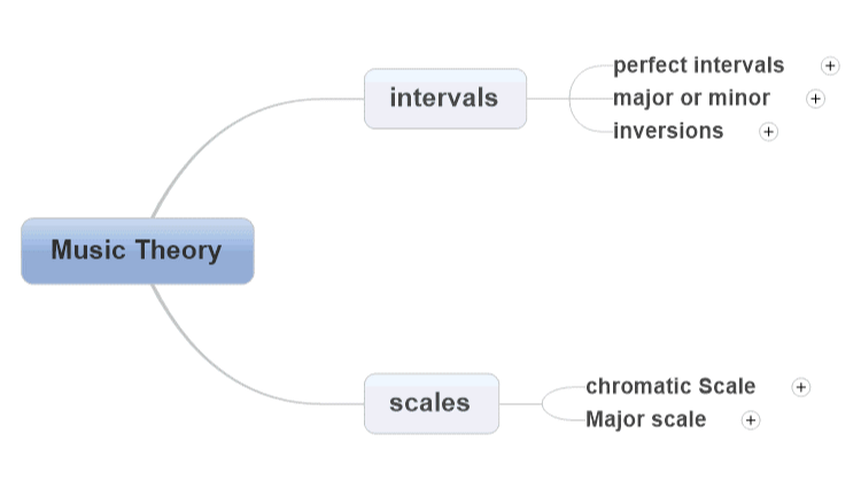|
I didn’t learn about music theory until I entered college. It was one of the most difficult subjects that I struggled with early on in my training, but without it, I would not be the musician that I am today. Sometimes it is not about the concept of music theory itself that poses the problem, but the exams for it. Music theory exams can be both challenging and rewarding, serving as a crucial component of a musician's education. Whether you're a student preparing for an upcoming exam or an aspiring musician seeking to deepen your theoretical understanding, these ten strategies will help you navigate the intricacies of music theory assessments with confidence and success. 1. Consistent Review and Practice Regular and consistent review is key to mastering music theory. Set aside dedicated time for daily or weekly review sessions to reinforce your understanding of key concepts. Engage in practical exercises and apply theoretical knowledge to musical examples to solidify your foundation. If you’re slated to take the ABRSM, Trinity College of Music or Royal Conservatory exams, they offer free online practice exams that your learner can take to anticipate the format of the exam. 2. Flashcards for Quick Recall Create flashcards for essential music theory terms, concepts, and notations. This simple yet effective strategy aids quick recall during exams. Challenge yourself to define terms, identify symbols, and explain concepts in brief, reinforcing your grasp of fundamental elements. If you are a bit on a time crunch, you can also explore apps and websites like Quizlet that have electronic flashcards prepared for public use. 3. Practice Ear Training Ear training is integral to music theory. Enhance your ability to recognize intervals, chords, and melodies by incorporating ear training exercises into your routine. Utilize online tools, apps, or work with a tutor to refine your aural skills, as they often play a significant role in music theory exams. I've discovered TonedEar, an outstanding online application featuring a diverse range of exercises encompassing interval identification, perfect pitch training, scale recognition, and chord identification. 4. Apply Theory to Your Instrument Connect theoretical concepts to your instrument. Practice scales, arpeggios, and exercises while actively thinking about the theory behind them. This practical integration not only reinforces your theoretical knowledge but also enhances your overall musicianship. 5. Group Study Sessions Organize group study sessions with fellow musicians preparing for the same exam. Explaining concepts to others reinforces your understanding, while engaging in discussions allows you to gain different perspectives and insights. Group study can also make the learning process more enjoyable. 6. Utilize Mnemonics and Acronyms Create mnemonics or acronyms to remember sequences, formulas, or lists. These memory aids can be particularly helpful when recalling specific orderings, such as the order of sharps or flats in key signatures. For instance, you can use the mnemonic "Every good boy deserves fudge" to remember the notes corresponding to the lines on a staff in the treble clef. 7. Simulate Exam Conditions Replicate exam conditions during your practice sessions. Set a timer, create mock exams, and practice answering questions under time constraints. This simulates the pressure of an actual exam, helping you manage time effectively, anticipate expectations, and reduce anxiety. 8. Create Concept Maps Concept maps are visual tools that illustrate relationships between different musical elements. Create concept maps to visualize connections between key concepts, scales, chords, and other components of music theory. This visual representation aids comprehension and recall.
9. Prioritize Weak Areas Identify your weaker areas and allocate extra time and effort to address them. Whether it's specific intervals, chord progressions, or key signatures, focusing on your weaknesses ensures a well-rounded understanding of music theory. 10. Seek Guidance from Teachers or Tutors If you encounter challenges or have specific questions, seek guidance from your music theory teacher or consider hiring a tutor. Having a mentor provides personalized support, clarification of doubts, and additional insights to enhance your overall understanding. Conclusion Approaching music theory exams with a strategic mindset and a well-rounded preparation plan sets the stage for success. Consistent practice, collaborative learning, practical integration, and targeted focus on weaker areas are essential components of a comprehensive strategy. By incorporating these ten strategies into your preparation routine, you'll not only navigate your music theory exams with confidence but also deepen your overall appreciation and understanding of the intricate world of musical theory. If you want to learn more about our music theory course offerings, schedule a free consultation with us today!
0 Comments
Leave a Reply. |
AuthorWrite something about yourself. No need to be fancy, just an overview. Archives
June 2024
Categories
All
|
Music & Language Learning Center |
Music Classes |
Language Classes |
MUSIC AND LANGUAGE LEARNING CENTER 2024




 RSS Feed
RSS Feed

